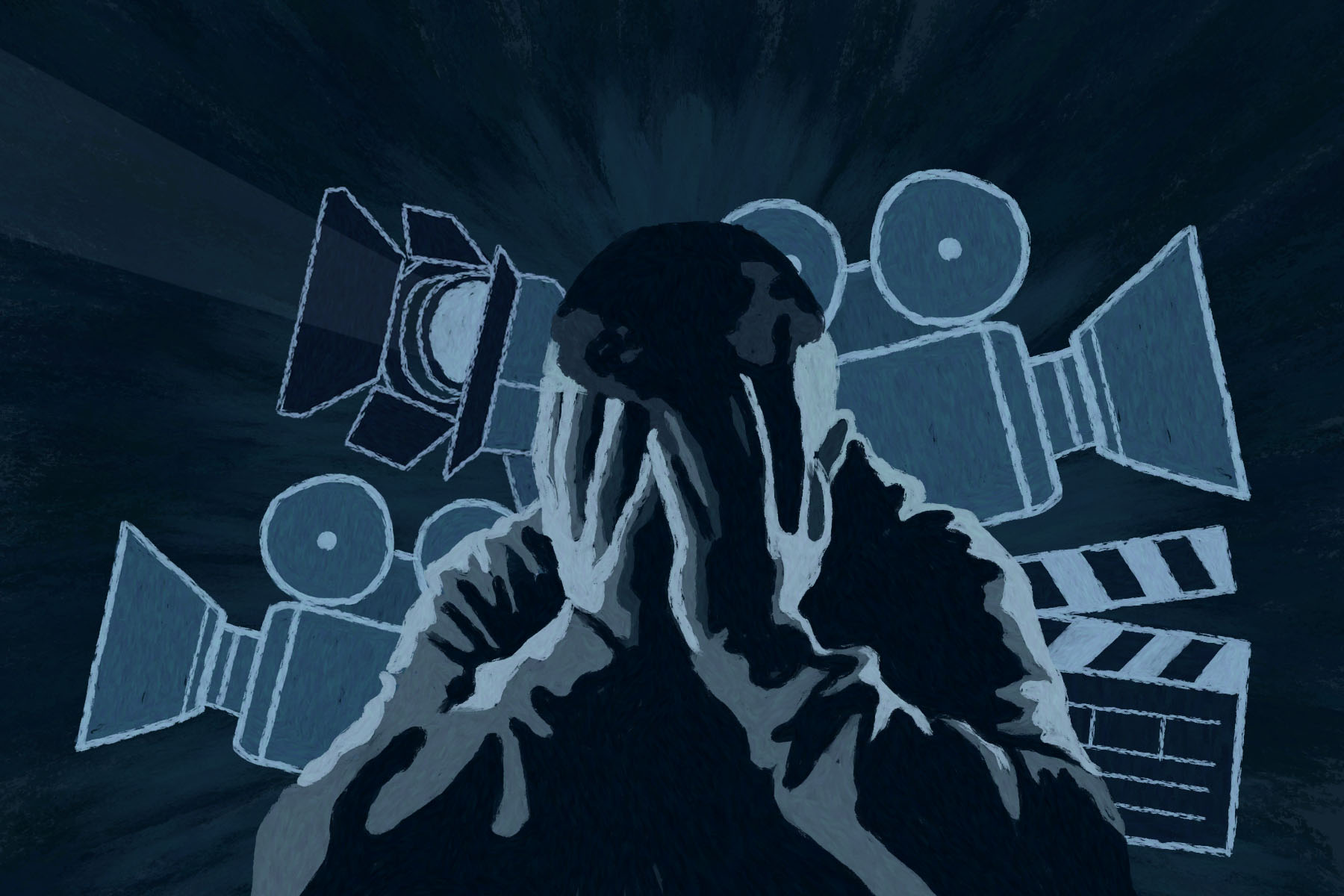Actors are standing up for themselves this year. While the career may be glorified, it is widely understood that the journey is not glamorous. Recently, the writers’ and actors’ strikes have unveiled the unromantic reality of mental health struggles actors face.
As of July 14th, 2023, the Screen Actors Guild – American Federation of Television and Radio Artists (SAG-AFTRA) joined with the Writers Guild of America (WGA) in their strike that has been ongoing since May 2nd, 2023.
Striking actors demanded higher pay and stricter regulations of a studio’s use of artificial intelligence to capture and reproduce an actor’s likeness. Alongside these demands, a rising emphasis on protecting actors’ mental health has also emerged.
As the troubled reality of actors’ lives becomes more visible, more concerns regarding their careers have come to light, a notable topic being their mental stability diminishing due to such an emotionally trying occupation. An unavoidable requirement of being an actor is possessing the capability to access a vast library of emotions, some of which the actor never had to experience until landing a particular role. As mainstream film and television portray increasingly explicit topics and visuals, the characters actors are expected to portray require more complex emotions and actions.
What many forget to realize — and something the SAG-AFTRA strike is a reminder of — is that actors are not just bodies to be manipulated. They are employees who deserve the same fair working conditions as other workers. The more vulnerable the actor has to be, the more potential there is for harm.
Throughout the history of on-screen performance, few accommodations for actors have been developed into roles in the industry. The use of stunt doubles became important assets to preserve an actor’s physical health. While preserving an actor’s mental health is just as important in order to sustain a truly safe working condition, less measures are typically taken. Studios need to adhere to stricter regulations and provide counselors and coordinators to protect actors’ well-being going forward.
Intimacy coordinators have become expected on-set. This role was brought into the light following #MeToo and the cases of abuse in the industry that motivated the movement. As many recognizable Hollywood names were being outed as perpetrators of sexual harassment, Hollywood gained a reputation as being unsafe in this respect. Within the last five years, there has been a push to bring more attention to the importance of intimacy coordinators on-set in order to bridge a healthy gap between the physical and mental health hurdles that come with intimate scenes. The role of the intimacy coordinator is to choreograph intimate scenes with actors and act as a counselor to help guide scene partners through discussions about how they can properly respect each other’s boundaries throughout rehearsals and performance. Incorporation of this role is a crucial acknowledgement that actors are not untouched by the material they are performing and may be potentially triggered or traumatized by what they are expected to do.
While this is a big step, sexually graphic scenes are not the only explicit type of content that is becoming more mainstream. Film and television with heavy emotional material such as drug addiction, physical abuse and gore have flooded streaming services. Many praise shows such as “Euphoria” for the realistic portrayals of addiction and abuse. The reason the content is so believable is because actors put themselves in an intense headspace to deliver such distressing scenes.
Michelle Sherman, director of behavioral health at the University of Minnesota (UMN) Medical School states, “When you really get into character, your blood pressure goes up, your heart rate increases, and your mind and body can’t differentiate between reality and acting.”
Robert Levy, another professor at UMN Medical School describes, “The art of becoming another person leaves the actor vulnerable. They must open their mind and soul to the character and are at unique risk of taking on the mental anguish that the character has.”
A necessary step in protecting actors’ mental health on-set is providing reliable mental health resources and services to help actors differentiate reality from fiction. Therapists specializing in film actors’ issues could help them understand their personal perspectives on their character’s choices. These therapists would also help actors unpack and dismiss their emotions after filming emotionally intense scenes. Not only will this benefit actors in their health, but it could potentially enhance their ability to understand their character and therefore, deliver a better performance.
Recently, Hollywood stars have been expressing an increasing demand for on-set therapists. In June, the Hollywood Reporter released an actors roundtable including actresses Jennifer Coolidge, Clare Danes, Emma D’Arcy, Dominique Fishback, Jennifer Garner and Melanie Lynskey. They discussed what they believed was missing on sets, and Fishback drove the conservation about needing therapists. She discussed what she felt after filming a gruesome death scene stating, “I asked them to have a therapist on-set just because I didn’t know how I was going to be affected or other actors or even the crew. So, on that day, she was there and it was really helpful because, after, I couldn’t stop crying.”
Regarding the filming of “Judas and the Black Messiah” (2021), an emotional experience for all actors involved, Fishback stated, “That day, Shaka King, the director and co-writer, came and he looked at all of us and we were all real quiet and he said, ‘I think we should have therapists on-set.’”
The British film industry has begun to make advancements in the right direction. Following the 2017 death of production manager Michael Harm, British non-profit Film and TV Charity became a 24-hour hotline for struggling actors. In 2020, the organization then known as the Film and TV Charity received close to 7,000 calls. The American film industry should take note and follow in their footsteps.
While there isn’t a huge presence of today’s striking Hollywood actors demanding a guarantee of mental health support on-set, incorporating systems designed to protect actors’ mental health should be considered an essential addition to their requests. The issue of working rights for actors goes beyond their pay. It goes as far as safeguarding their well-being and, therefore protecting their lives.
















